Armed with headlamps and tweezers, American evolutionary ecologist Jonathan Shik and his team spent more than 100 hours lying on the floor of a tropical forest in Panama watching leafcutter ants going about their business.
First the researchers wanted to learn about the ants’ foraging paths and preferences. Then, with the tweezers, they would withdraw from the ants’ mandibles small plant pieces and place them in specially marked “evidence bags”.
Tiny farmers
This painstakingly slow fieldwork was needed to answer one of the mysteries about ants: how did these tiny-brained insects evolve to become highly successful farmers in an ever-changing environment?
“Ants developed agriculture just by natural selection.
‘Ants developed agriculture just by natural selection, without the benefits of technology or culture,’ said Shik, who led a team from the University of Copenhagen in Denmark and the Smithsonian Tropical Research Institute in Panama. ‘Ants have thrived across 60 million years of global climate change. Humans have been farming for only 10 000 years and the sustainability of our systems is under threat.’
There are dozens of species of leafcutter ants and all of them harvest pieces of fresh vegetation, carefully choosing from among many plant species.
Back in the nest, they turn collected plant material into a kind of compost and use it to grow their own type of domesticated fungus. This in turn becomes a food that ants eat.
The behaviour is similar to humankind’s farming practices. But while human agriculture struggles to cope with climate variations, leafcutter ants manage to grow their fungus food in a range of environments from Argentina to the US state of Texas.
Seeking to understand this farming resilience, Shik and his team performed a combination of field research and laboratory experiments during a five-year EU project called ELEVATE. The initiative ran from February 2018 until January 2023.
Fungal focus
‘This fungal crop has certain nutritional needs for components like nitrogen, phosphorus and calcium, so figuring out how the ants select the right nutrition for their fungi across hundreds of tree species in a rainforest was a key part of the research,’ said Shik.
In the field, scientists also collected samples of the fungus crop from underground nests of ants for analysis.
‘These balls of fungus, resembling little brains, could be found in the small cave-like chambers deep inside the nests,’ said Shik. ‘We usually used a spoon to carefully remove small parts.’
Back in the laboratory at the University of Copenhagen, the team set up around 150 artificial ant colonies, mimicking different temperatures and humidity in special climate-controlled chambers. The researchers developed combinations of nutrients for ants to collect and carry to these artificial nests.
By analysing the fungus crops produced, the team was able to understand which nutritional blends are optimal for the fungi. Findings from the lab matched a combination of nutrients that the ants collect in the Panamanian forest.
‘What we saw, for instance, is that too much protein in the diet is toxic for the fungus,’ said Shik. ‘So, when we offered protein-rich diets to ants in the lab, they would rather let their fungus garden starve to death than bring these nutrients back to the nest.’
Caterpillar assistance
They also explored how this symbiosis advanced over time.
Compared with their more primitive ancestors, leafcutter ants are farming more nutritious fungus. But their crop has developed more specific nutritional needs, becoming increasingly dependent on farmer ants to provide the right growth conditions.
The project had key results published in a journal called Nature Ecology and Evolution and the unexpected discoveries are inspiring further research.
For example, the team is now trying to figure out why some fungus-farming ants use bits of caterpillar excrement to fertilise their crop.
The researchers suspect that some leaves in the rainforest contain toxic chemicals, which are removed by a caterpillar’s digestion.
Nontribal wasps
In Africa, another type of insect is being forced to adapt social behaviour to climate variations.
English biologist Patrick Kennedy from the University of Bristol in the UK has spent the past two years in varying African landscapes to find out whether climate differences drive more altruistic behaviour among wasps.
“Climatic factors influence animal cooperation.
In the animal world, individuals will typically help relatives with the same genes. But some recent findings suggest that in temperate zones – places like Europe with distinct winter and summer seasonal changes – unrelated wasps work together more often than those that live in the tropics.
Researchers think that temperate zones force wasps to hibernate in the winter and, once hibernation is over, they more often lose contact with their close relatives. To survive and thrive, the wasps have no choice but to work with individuals that don’t necessarily have the same genes.
This behaviour is seemingly less frequent in tropical areas where wasps can build nests throughout the year.
Through an EU-funded project called WaspCLIM, Kennedy has been researching the social behaviour of an African wasp species found in a wide range of climatic conditions. The initiative began in January 2021 and runs until the end of this year.
Kennedy teamed up with African scientists to conduct field experiments in tropical Cameroon and in more climatically diverse South Africa, where winter temperatures can drop to 15 degrees Celsius. The group included experts from the universities of Yaounde and Douala in Cameroon.
Wings and stings
In the field, the scientists marked hundreds of wasps with different colour systems. They put between one and three dots on the left wing as a code for a specific nest, while a mark on the right wing indicated a specific individual.
They also took a tiny piece from one of the wasp’s legs for a DNA sample.
‘We usually take the wasp from the nest, one by one, with forceps, wearing rubber gloves,’ said Kennedy. ‘You have to be quite careful not to disturb them, but we still get stung quite a lot.’
When all was set, the researchers offered the wasps the opportunity either to work together or to forgo cooperation. That meant either building their own nest or acting as subordinates in another one, all while their behavioural choices were tracked with research cameras.
Local curiosity
The experiments often attracted the attention of curious locals.
In one village in the East Region of Cameroon, Kennedy was approached by a man asking for help in removing wasps from his grandmother’s house. When Kennedy arrived there, he got more than he bargained for.
‘In Cameroon wasps are considered to be a defence against witches,’ said Kennedy. ‘The grandmother got carried away and ended up with more than 20 wasp nests in the house.’
In what turned out to be a win-win outcome, he happily removed the nests and used them for research.
Wasps are particularly interesting insects because, unlike well-behaved bees, their behaviour better resembles that of people, according to Kennedy. For example, wasp nests are full of family dramas, betrayal and fights for power.
That said, wasps can also be very useful to humans.
‘Science has shown that climatic factors influence animal cooperation,’ said Kennedy. ‘Wasps are perfect windows into how this occurs.’
The team is exploring what drives the choices of wasps while looking to use them as potential allies in the fight against crop pests in Africa.
Research in this article was funded by the EU via the European Research Council (ERC) and the Marie Skłodowska-Curie Actions (MSCA). If you liked this article, please consider sharing it on social media.
O artigo foi publicado originalmente em Horizon, the EU Research and Innovation Magazine.

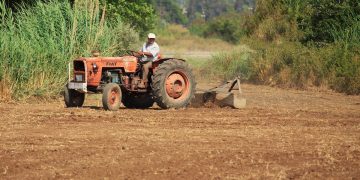
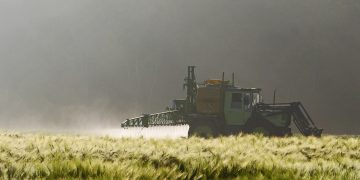





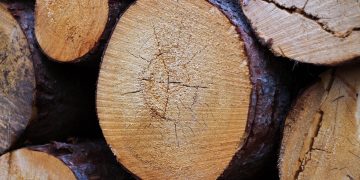












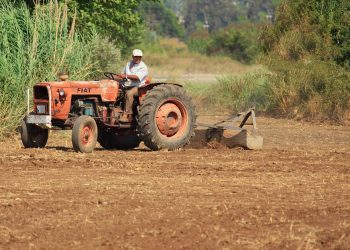
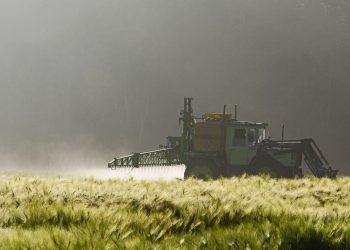




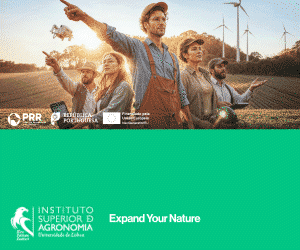


























Discussão sobre este post